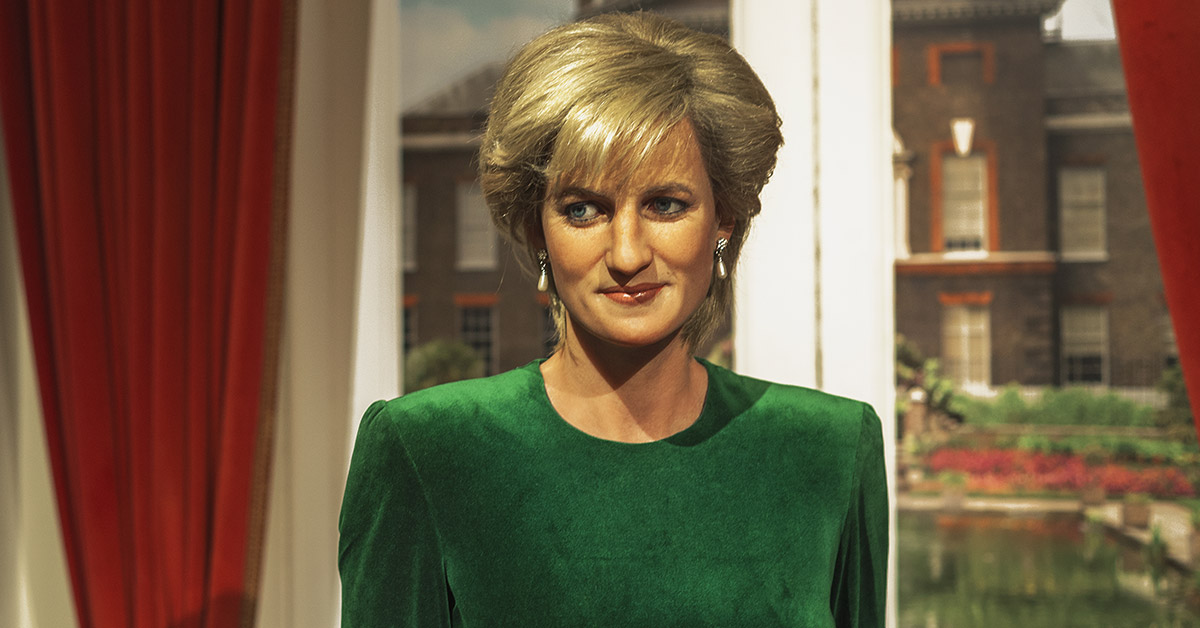You never “get over” the death of a loved one, not really. Even years after the demise, life has its way of resurfacing the grief. For Prince William, he was 15 when his mother, Princess Diana, died suddenly in a car crash. However, when he became a father, all of the pain from the trauma returned. In a BBC documentary about mental health, he described the experience as “overwhelming” at times.
Mourning Princess Diana
One year before Princess Diana’s death, the family was upheaved by another difficult experience: her divorce from Princes Charles and all that accompanied it. Media attention was as invasive as ever, and teenage William watched as his parent’s marriage fell apart. This event raised disagreements on money, access, and most notably, Diana’s title.
Diana wanted to keep her royal title of “Her Royal Highness.” After all, she was the mother of the future heir and even Queen Elizabeth II took her side. However, some publications state that King Charles insisted that she lose her title and the privileges that came with it, including all formal connections with her children. Plus, since they would then outrank her, she’d have to follow royal etiquette like curtsying to her own sons.
In the end, she would still be called Diana, Princess of Wales, but she lost her “Her Royal Highness” (HRH) title. And most importantly, she got joint custody of William and Harry. Young William tried to comfort his mother during this time, according to Diana’s former butler, Paul Burrell. In his book, A Royal Duty, Burrell writes,
“She told me how he had sat with her one night when she was upset over the loss of HRH, put his arms around her and said, ‘Don’t worry, Mummy. I will give it back to you one day when I am king.'” [1]
However, his promise remained unfulfilled when she died a year later.
Read: Harry Says Diana Was ‘Chased To Her Death While She Was In A Relationship With Someone That Wasn’t White’ And Feared ‘History Was Repeating Itself’ With Meghan
Raising Awareness for Men’s Mental Health
In an interview with professional athlete Marvin Sorden about men’s mental health, William opened up about the emotions surrounding having children. Sordell described becoming a dad as “the hardest time in my life”. At that point, he struggled emotionally partially because he grew up without a father. Prince William agreed, saying,
“Having children is the biggest life-changing moment, it really is. And I agree with you, I think when you’ve been through something traumatic in life — and that is like you say your dad not being around, my mother dying when I was younger — your emotions come back in leaps and bounds because it’s a very different phase of life. And there’s no one there to, kind of, help you, and I definitely found it very, at times, overwhelming.” [2]
To cope with Princess Diana’s death at such a young age, William pushed away his emotions and hid them beneath his demanding routine. However, he’s recently opened about his struggles. In 2017, he campaigned for men to follow his example of opening up and talking about their struggles.
This campaign is much needed since men are less likely to admit and discuss their mental health issues compared to women. The expectation for men to be strong and in control prevents them from asking for help and talking about their emotions. And this expectation is extremely harmful as shown by statistics showing that men are more likely to turn to unhealthy coping methods like drugs and alcohol. [3]
Read: Remarkable story of Prince Philip’s mother revealed
“Smashing the Taboo”
In a 2017 interview with GQ, William explained his passion for mental health awareness. “Practically everything in my charitable life, in the end, is to do with mental health, whether it be homelessness, veterans’ welfare, my wife and the work she is doing on addiction; so much of what we do comes back to mental health.”
He added that in his position as a helicopter pilot with the air ambulance services, he has responded to many incidents of overdoses, self-harm, and suicides. But his specific goal for the campaign was “smashing the taboo.” As he explained,
“People can’t access services till they feel less ashamed, so we must tackle the taboo, the stigma, for goodness sake, this is the 21st century. I’ve been really shocked how many people live in fear and in silence because of mental illness… I am shocked we are so worried about saying anything about the true feelings we have. Because mental illness is inside our heads, invisible, it means others tread so carefully, and people don’t know what to say, whereas if you have a broken leg in plaster, everyone knows what to say.” [4]
Keep Reading: Have You Ever Noticed This One Strange Detail in Pictures of Princess Diana and Prince Charles?
Sources
- “Princess Diana Felt a “Deep, Deep Sadness” When She Divorced Prince Charles.” Oprah Daily. Elena Nicolaou. November 26, 2020
- “Prince William: Parenthood brought Diana death emotions.” BBC News. May 24, 2020
- “Men and mental health.” Mental Health Foundation.
- “Prince William on Diana, Princess of Wales.” GQ Magazine. Alastair Campbell. May 29, 2017

